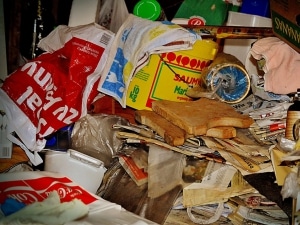
Optimizing Sustainability: Efficient Home Waste Disposal Solutions
In the pursuit of a greener and more sustainable lifestyle, one crucial aspect often overlooked is efficient home waste disposal. Let’s delve into the various strategies and solutions that can transform our homes into hubs of environmental responsibility, promoting a healthier planet for current and future generations.
The Challenge of Household Waste: A Growing Environmental Concern
As urbanization and population growth continue, the volume of household waste becomes a mounting environmental concern. The traditional approach of disposing of all waste in landfills has adverse effects on the environment, contributing to pollution and resource depletion. It’s imperative to explore more sustainable alternatives that align with the principles of waste reduction and responsible management.
Segregation at the Source: The Foundation of Responsible Waste Disposal
One key step towards efficient waste disposal is segregation at the source. By categorizing waste into recyclables, compostables, and non-recyclables, households lay the foundation for responsible waste management. This not only streamlines the disposal process but also facilitates the recycling and composting of materials, minimizing the burden on landfills.
Embracing Recycling Initiatives: Closing the Loop on Materials
Recycling stands as a cornerstone in the realm of sustainable waste disposal. Homes can actively participate in recycling initiatives by separating materials like paper, plastic, glass, and metal. Many communities offer recycling programs, and staying informed about local recycling guidelines empowers residents to make eco-friendly choices, contributing to the circular economy.
Composting: Transforming Kitchen Scraps into Nutrient-Rich Soil
Composting is a simple yet powerful solution for diverting organic waste from landfills. Kitchen scraps, yard trimmings, and other organic materials can be composted to create nutrient-rich soil. Home composting not only reduces the amount of waste sent to landfills but also produces valuable compost that can enhance the fertility of gardens and landscapes.
Linking Sustainability: Explore Home Waste Disposal for Green Practices
For those seeking comprehensive guidance on sustainable home waste disposal practices, consider exploring Home Waste Disposal. This platform offers valuable insights, tips, and resources to help individuals adopt green practices in waste management, fostering a collective commitment to environmental stewardship.
Smart Technologies: Innovations in Waste Management
In the digital age, technology plays a pivotal role in optimizing waste disposal. Smart bins equipped with sensors, waste tracking apps, and other technological innovations provide real-time data on waste generation. This information can inform more efficient waste management strategies, reduce overflows, and enhance the overall effectiveness of waste disposal systems.
Reducing Single-Use Plastics: A Pledge for a Greener Future
Single-use plastics pose a significant threat to the environment, taking centuries to decompose and contributing to pollution. Reducing the consumption of single-use plastics at home, opting for reusable alternatives, and supporting businesses that prioritize eco-friendly packaging are essential steps in minimizing the environmental impact of plastic waste.
Community Engagement: Building a Collective Eco-Conscious Mindset
Efficient home waste disposal extends beyond individual efforts. Community engagement plays a crucial role in creating a collective eco-conscious mindset. Collaborative initiatives such as neighborhood clean-up events, educational workshops, and shared composting programs strengthen the bond between residents and promote a sense of shared responsibility for the environment.
Educational Outreach: Fostering Awareness and Accountability
Educational outreach is a powerful tool in fostering awareness and accountability regarding home waste disposal. Schools, community centers, and online platforms can serve as mediums to disseminate information about the environmental impact of improper waste management and empower individuals with the knowledge needed to make informed, sustainable choices.
Conclusion: Small Changes, Big Impact
In conclusion, efficient home waste disposal is not just a responsibility but an opportunity to make a positive impact on the environment. By adopting sustainable practices, embracing technological innovations, and fostering community engagement, households can contribute to a cleaner, healthier planet. It’s a collective effort, and even small changes in our daily waste disposal habits can lead to significant positive outcomes for the environment.



